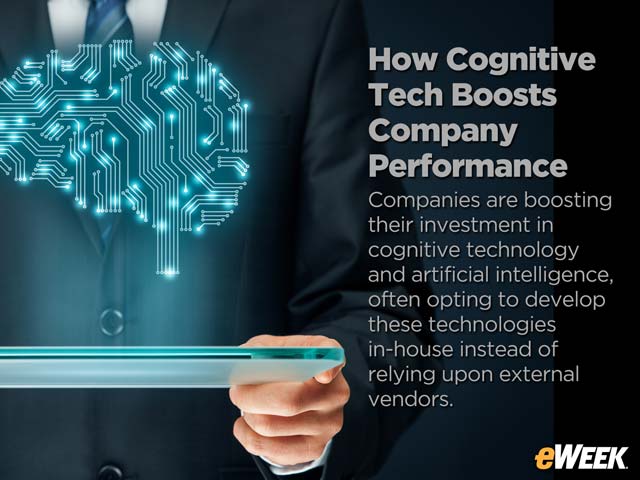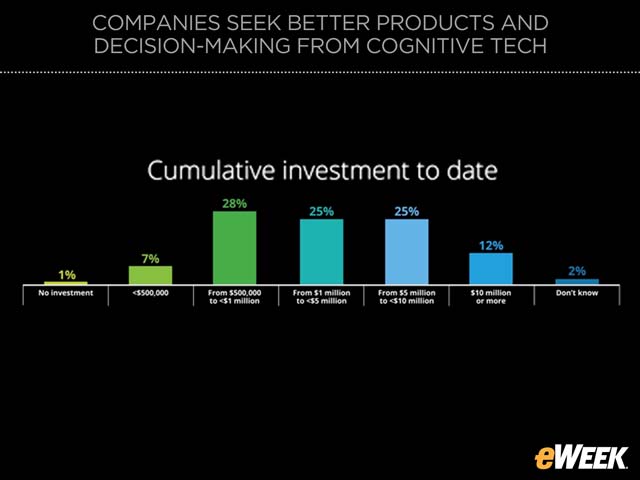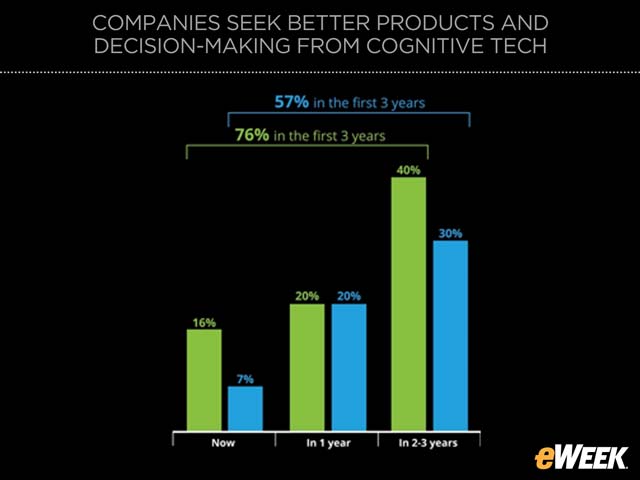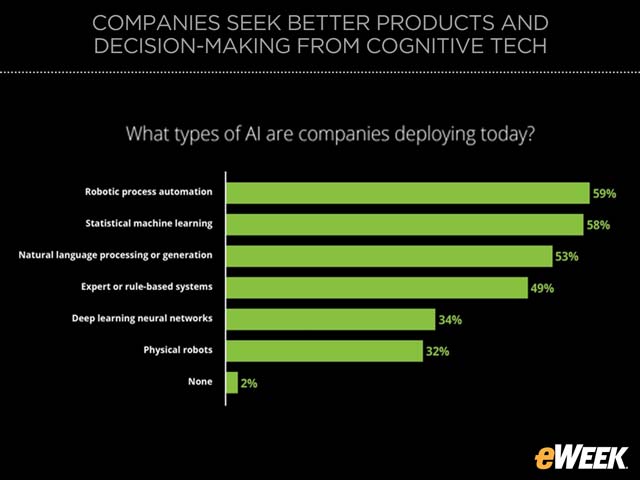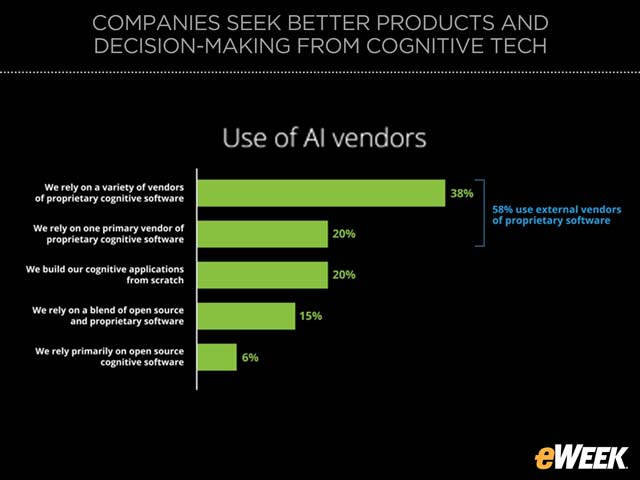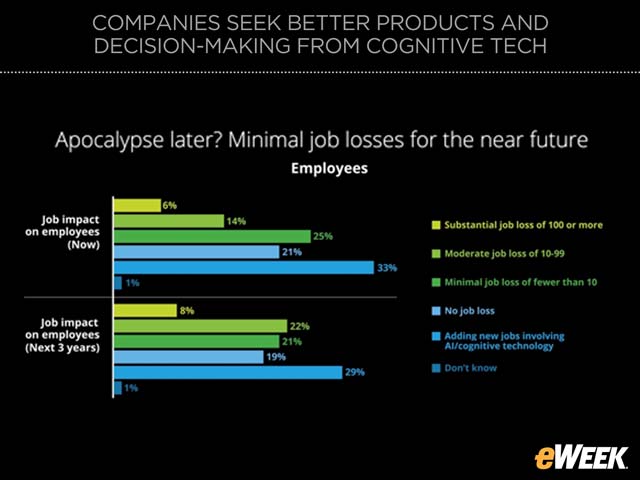eWEEK content and product recommendations are editorially independent. We may make money when you click on links to our partners. Learn More.
1Companies Seek Better Products and Decision-Making From Cognitive Tech
Intro: A clear majority of organizations are making seven-figure investments into cognitive technology—with most of this budgeting allocated to IT needs and functions, according to a recent survey from Deloitte. In anticipation of a widespread industry transformation, most companies have no less than six cognitive technologies and deployments underway. Among other benefits, they expect cognitive technology and artificial intelligence (AI) to improve their products while helping them make better decisions, in addition to optimizing internal business operations and enabling workers to spend more time on innovation. A total of 250 executives at companies considered active in cognitive technology took part in the research. Charts for this slide show were provided by Deloitte.
2Organizations Are Investing Significant Amounts Into Cognitive Tech
3‘DIY’ Approach Distinguishes Top Cognitive Tech/AI Enterprises
More than two of five companies are considered in the “fast lane” of cognitive tech and artificial intelligence (AI), meaning they have “jumped in” on deployment, know where to apply these advancements and take at least a partial “do it yourself” approach to developing and integrating them. Nearly one-quarter are considered “waders,” meaning they heavily rely on external vendors for cognitive tech and AI.
4Cognitive Tech Pilots and Deployments Emerge as Active Pursuits
5Transformation Expected in Near Future
6Robotics and Statistical Machine Learning Are Going Mainstream
7AI Is Considered a Key Performance Driver
8Smart Machines Are Intended to Streamline Work Processes
9IT Opts for Both Vendor-Supplied and ‘Home Grown’ Cognitive Tech Options
10Projects Bring Integration Challenges
11Companies Give Mixed Reading on Job Stability
To take advantage of cognitive tech, 45 percent of survey respondents feel that “minimal” to “substantial” reductions in staffing are required “now.” However, 33 percent anticipate that their organization will need to add new jobs to effectively leverage AI/cognitive tech.
